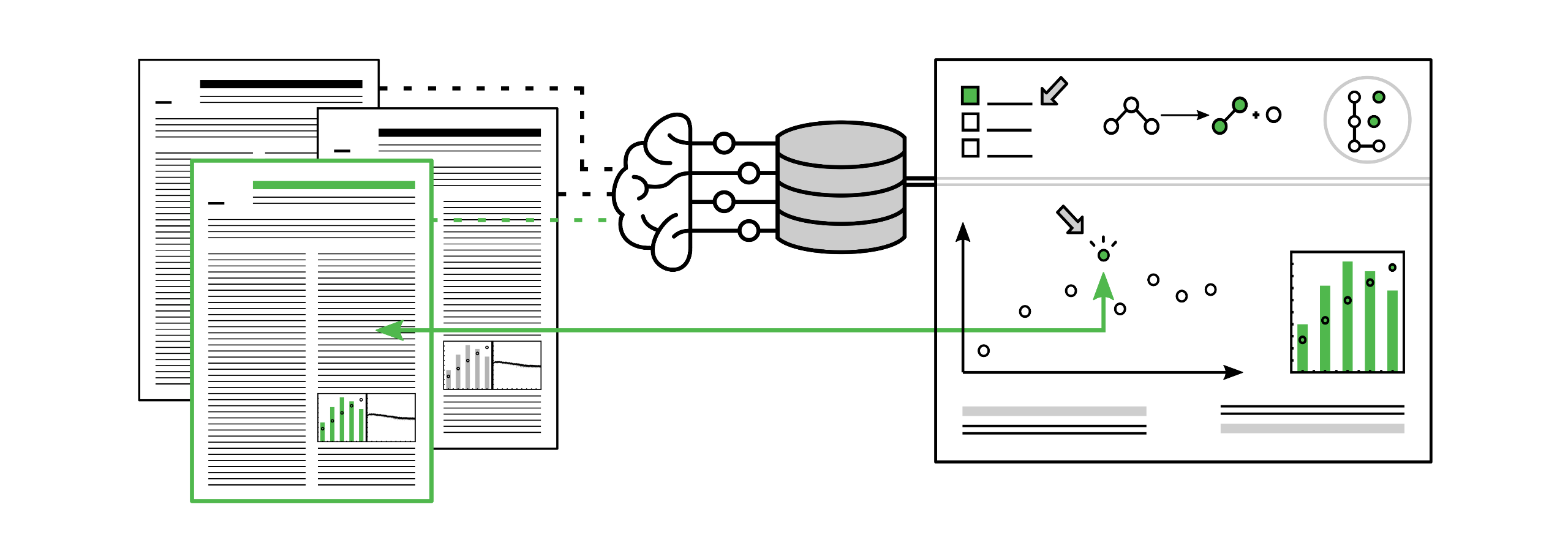
Esplorado
catalyzing research
Explore scientific publications via visual representaiton of key content indicators
A novel approach
Esplorado proposes a novel literature research method, in which the scientific publications are sorted by key-performance-indicators (KPIs), in contrast to the common title and abstract key-word based research engines.Esplorado scrapes scientific journals content and classifies the key-content-indicators.
Via the web portal, the users can interactively visualize the properties directly from the overview, and only then select the journals to read. Moreover, the digitalization of the KPI properties allows the use of novel analytic tools to relate material and process properties.Case study: Catalysis implies the improvement of the chemical reactions efficiency. A catalyst material lowers the energy barriers of the reaction intermediates, promoting the reaction rate and the selectivity. Catalytic materials are key components for the transition to a greener and sustainable future.
The performance of a catalytic material can be described by few numeric parameters such as activity, selectivity and stability.The scope of the project further explore the analysis and comparison of all the data related to catalytic processes, such as catalytic material syntheses, their support on electrodes or reactor bed and the reactor designs.

Benefits: the customer benefits of higher time efficiency and quality of information during literature research.
Try Esplorado and help us with your feedbacks!
Excited about the project?
Interested in Esplorado?
Would you like to try Esplorado in your specific research topic?
Do you want to join the team?
Contact us!
FOUNDERS